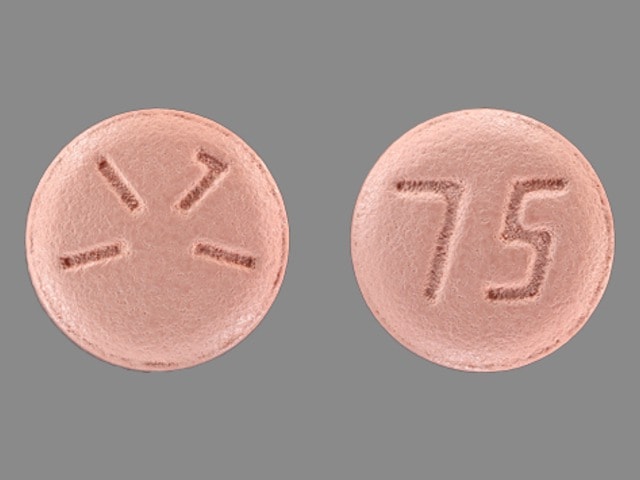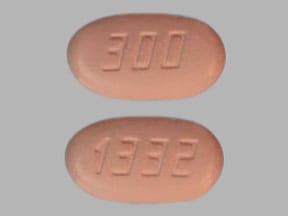Plavix
Generic name: clopidogrel
Drug class: Platelet aggregation inhibitors
Medically reviewed by A Ras MD.
What is Plavix?
Plavix is a prescription medicine used to treat people who have any of the following chest pain due to heart problems, poor circulation in their legs (peripheral arterial disease), a heart attack and /or a stroke
Plavix is used alone or with aspirin to lower your chance of having another serious problem with your heart or blood vessels such as heart attack, stroke, or blood clot that can lead to death.
Platelets are blood cells that help your blood clot normally. Plavix helps to prevent platelets from sticking together and forming a clot that can block an artery.
It is not known if Plavix is safe and effective in children.
Description
Plavix (clopidogrel tablets) is a thienopyridine class inhibitor of P2Y12 ADP platelet receptors. Chemically it is methyl (+)-(S)-α-(2-chlorophenyl)-6,7-dihydrothieno[3,2-c]pyridine-5(4H)-acetate sulfate (1:1). The empirical formula of clopidogrel bisulfate is C16H16ClNO2S•H2SO4 and its molecular weight is 419.9.
The structural formula is as follows:

Clopidogrel bisulfate is a white to off-white powder. It is practically insoluble in water at neutral pH but freely soluble at pH 1. It also dissolves freely in methanol, dissolves sparingly in methylene chloride, and is practically insoluble in ethyl ether. It has a specific optical rotation of about +56°.
Plavix for oral administration is provided as either pink, round, biconvex, debossed, film-coated tablets containing 97.875 mg of clopidogrel bisulfate which is the molar equivalent of 75 mg of clopidogrel base or pink, oblong, debossed, film-coated tablets containing 391.5 mg of clopidogrel bisulfate which is the molar equivalent of 300 mg of clopidogrel base.
Each tablet contains hydrogenated castor oil, hydroxypropyl cellulose, mannitol, microcrystalline cellulose, and polyethylene glycol 6000 as inactive ingredients. The pink film coating contains ferric oxide, hypromellose 2910, lactose monohydrate, titanium dioxide, and triacetin. The tablets are polished with Carnauba wax.
Mechanism of Action
Clopidogrel is an inhibitor of platelet activation and aggregation through the irreversible binding of its active metabolite to the P2Y12 class of ADP receptors on platelets.
What is the most important information I should know about Plavix?
1. Plavix may not work as well in people who:
- have certain genetic factors that affect how the body breaks down Plavix. Your doctor may do genetic tests to make sure Plavix is right for you.
- take certain medicines, especially omeprazole (Prilosec) or esomeprazole (Nexium). Your doctor may change the medicine you take for stomach acid problems while you take Plavix.
2. Plavix can cause bleeding which can be serious and can sometimes lead to death. Plavix is a blood thinner medicine that lowers the chance of blood clots forming in your body. While you take Plavix:
- you may bruise and bleed more easily
- you are more likely to have nose bleeds
- it will take longer for any bleeding to stop
Call your doctor right away if you have any of these signs or symptoms of bleeding:
- unexpected bleeding or bleeding that lasts a long time
- blood in your urine (pink, red or brown urine)
- red or black stools (looks like tar)
- bruises that happen without a known cause or get larger
- cough up blood or blood clots
- vomit blood or your vomit looks like coffee grounds
Do not stop taking Plavix without talking to the doctor who prescribes it for you. People who stop taking Plavix too soon have a higher risk of having a heart attack or dying. If you must stop Plavix because of bleeding, your risk of a heart attack may be higher.
Who should not take Plavix?
Do not take Plavix if you:
- currently have a condition that causes bleeding, such as a stomach ulcer
- are allergic to clopidogrel or other ingredients in Plavix. See below for a complete list of ingredients in Plavix.
What should I tell my healthcare provider before taking Plavix?
Before you take Plavix, tell your doctor if you:
- have a history of bowel (gastrointestinal) or stomach ulcers
- have a history of bleeding problems
- plan to have surgery or a dental procedure. See “How should I take Plavix?”.
- are pregnant or plan to become pregnant. It is not known if Plavix will harm your unborn baby
- are breastfeeding or plan to breastfeed. It is not known if Plavix passes into your breast milk. A decision should be made with your healthcare provider to avoid or discontinue breastfeeding when continuing Plavix is needed.
- have had an allergy or reaction to any medicine used to treat your disease.
Tell all of your doctors and your dentist that you are taking Plavix. They should talk to the doctor who prescribed Plavix for you before you have any surgery or invasive procedure.
Tell your doctor about all the medicines you take, including prescription, non-prescription medicines, vitamins and herbal supplements.
Plavix may affect the way other medicines work, and other medicines may affect how Plavix works. See “What is the most important information I should know about Plavix?”.
Plavix may increase blood levels of other medicines such as repaglinide (Prandin).
Taking Plavix with certain other medicines may increase your risk of bleeding. Especially tell your doctor if you take:
- aspirin, especially if you have had a stroke. Always talk to your doctor about whether you should take aspirin along with Plavix to treat your condition.
- Non-steroidal anti-inflammatory drugs (NSAIDs). Ask your doctor or pharmacist for a list of NSAID medicines if you are not sure.
- warfarin (Coumadin, Jantoven).
- selective serotonin reuptake inhibitors (SSRIs) and serotonin norepinephrine reuptake inhibitors (SNRIs). Ask your doctor or pharmacist for a list of SSRI or SNRI medicines if you are not sure.
Know the medicines you take. Keep a list of them to show your doctor or pharmacist when you get a new medicine.
How should I take Plavix?
- Take Plavix exactly as your doctor tells you.
- Do not change your dose or stop taking Plavix without talking to your doctor first. Stopping Plavix may increase your risk of heart attack or stroke.
- Take Plavix with aspirin as instructed by your doctor.
- If you miss a dose, take Plavix as soon as you remember. If it is almost time for your next dose, skip the missed dose. Take the next dose at your regular time. Do not take 2 doses of Plavix at the same time unless your doctor tells you to.
- If you take too much Plavix, call your doctor or go to the nearest emergency room right away.
- Talk with your doctor about stopping your Plavix before you have surgery. Your doctor may tell you to stop taking Plavix at least 5 days before you have surgery to avoid excessive bleeding during surgery.
What are the possible side effects of Plavix?
Plavix can cause serious side effects including:
- See “What is the most important information I should know about Plavix?” above.
- A blood clotting problem called Thrombotic Thrombocytopenic Purpura (TTP). TTP can happen with Plavix, sometimes after a short time (less than 2 weeks). TTP is a blood clotting problem where blood clots form in blood vessels; and can happen anywhere in the body. TTP needs to be treated in a hospital right away, because it may cause death. Get medical help right away if you have any of these symptoms and they can not be explained by another medical condition:
- purplish spots (called purpura) on the skin or in the mouth (mucous membranes) due to bleeding under the skin
- your skin or the whites of your eyes are yellow (jaundice)
- you feel tired or weak
- your skin looks very pale
- fever
- fast heart rate or feeling short of breath
- headache
- speech changes
- confusion
- coma
- stroke
- seizure
- low amount of urine, or urine that is pink or has blood in it
- stomach area (abdominal) pain
- nausea, vomiting, or diarrhea
- vision changes
- persistent low blood sugar symptoms
Tell your doctor if you have any side effect that bothers you or that does not go away. Tell your doctor if you develop an allergic reaction including skin reactions while taking Plavix.
These are not all the possible side effects of Plavix. For more information, ask your doctor or pharmacist.
Call your doctor for medical advice about side effects. You may report side effects to FDA at 1-800-FDA-1088.
Drug Interactions
A total of 230 medications are known to interact with Plavix. Use the Interactions Checker Tool.
Common Interactions Checks
General information about the safe and effective use of Plavix
Medicines are sometimes used for purposes other than those listed in a Medication Guide. Do not take Plavix for a condition for which it was not prescribed. Do not give Plavix to other people, even if they have the same symptoms that you have. It may harm them.
This Medication Guide summarizes the most important information about Plavix. If you would like more information, talk to your doctor. Ask your doctor or pharmacist for information about Plavix that was written for healthcare professionals.
For more information, go to www.sanofi-aventis.us or www.bms.com or call 1-800-321-1335.
How should I store Plavix?
Store Plavix at 59°F to 86°F (15°C to 30°C).
Keep Plavix and all medicines out of the reach of children.
What are the ingredients in Plavix?
Active ingredient: clopidogrel bisulfate
Inactive ingredients:
Tablet: hydrogenated castor oil, hydroxypropyl cellulose, mannitol, microcrystalline cellulose, polyethylene glycol 6000
Film coating: ferric oxide, hypromellose 2910, lactose monohydrate, titanium dioxide, triacetin, Carnauba wax
Label
PRINCIPAL DISPLAY PANEL – 75 MG TABLET BOTTLE LABEL
- List No. 1171-60
NDC 63653-1171-6 - 30 Tablets
- Plavix®
(clopidogrel tablets) - 75 mg
- Dispense with
Medication Guide - Rx only


PRINCIPAL DISPLAY PANEL – 300 MG TABLET BLISTER PACK CARTON
- List No. 1332-20
NDC 63653-1332-2 - Plavix®
(clopidogrel tablets) - 300 mg
- Dispense with Medication Guide
- Rx only
30 film-coated tablets - Bristol-Myers Squibb Company
sanofi aventis


SRC: NLM .
